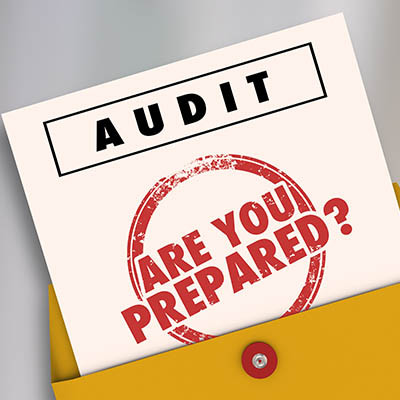SouthBridge Consulting Blog
Your Business Can’t Afford to Forego Security Auditing
While the word “audit” can easily be a scary thought for businesses, there are certain cases where an audit serves an organization’s direct benefit. Take, for instance, the ones that occur internally to identify and correct security issues and vulnerabilities. These audits are not only a positive endeavor for businesses; they’re extremely important to carry out.
Let’s talk about why this is and review a few standard practices you should prioritize as you go about this process.
First, What is a Security Audit, and Why Is It So Important?
As you would expect, a security audit reviews and analyzes a business’ protections against modern threats. It is meant to identify existing vulnerabilities and indicate where a business needs to improve its protections.
Hopefully, the reason it is so important is already clear, but just in case:
A security audit enables a business to understand its real-life risks better and improve its protections more effectively.
More specifically:
- An audit helps you find and resolve digital vulnerabilities in your infrastructure
- You also get insights into your business’ security and ways to improve it overall
- Auditing your security preparedness also helps you meet the evolution of modern threats
- Taking the initiative to identify and improve these vulnerabilities helps you inspire trust in your clients/customers
- Many compliance standards that businesses are beholden to are more easily followed with the help of an audit
- The information gleaned during an audit can help you develop more effective security policies moving forward
- Cyberattack preparedness and response can also be informed by data collected in an audit
What Kinds of Security Audits Are There?
First, audits can be separated by who is conducting them. Internal audits are conducted by members of the business being audited, and external audits involve a third party evaluating the business’ security preparations. Each has its own benefits and drawbacks, so undergoing both to the best of your ability will probably be ideal.
Whomever it is that is carrying out the audit, there are five security umbrellas that it should cover:
- Data - How protected is your data and access to it, whether at rest in a technology infrastructure or in transit?
- Operational - When examining your data loss prevention strategies, does every policy and procedure meet applicable best practices?
- Network - Are your network-wide security controls actually effective, including your antivirus and monitoring strategies?
- System - What processes and procedures are in place regarding account privileges and their management, patching, or role-based access controls?
- Physical - While your team uses their devices, what requirements are in place for them to access your network securely regarding access controls, authentication measures, and on-device data protections?
How to Optimize Your Security Audits
There are a few things that all of your audits should involve to help ensure you get as much value as you can from each of them. For instance:
Set Goals
While a security audit can and should cover various aspects of your business security, you should go into it with specific objectives in mind. How well does your network security operate? What vulnerabilities do you need to resolve? Having a goal in mind for your audit can help you better understand and approach different shortcomings as they are identified.
Communicate With Your Auditor
Whether an internal resource or an external provider like SouthBridge Consulting LLC is conducting your evaluation, you must reiterate the goals we just discussed as well as some of your business’ more specific needs… particularly concerning your compliance. While your auditor should already know what to look for, communicating with them can only be helpful.
Act on the Information
Evaluating your existing security measures and not making any changes based on the results would be a waste of time and money. Make sure you consider your audit's outcome completely, lean on an IT professional for assistance, and make the adjustments they recommend.
We Can Be Here for You
If you worked with us, you’d have access to a team of technology experts committed to helping your business’ IT—and, by extension, your business—thrive, focusing on both productivity and security. To learn more about what we can offer, call us at (281) 816-6430.
When you subscribe to the blog, we will send you an e-mail when there are new updates on the site so you wouldn't miss them.


Comments